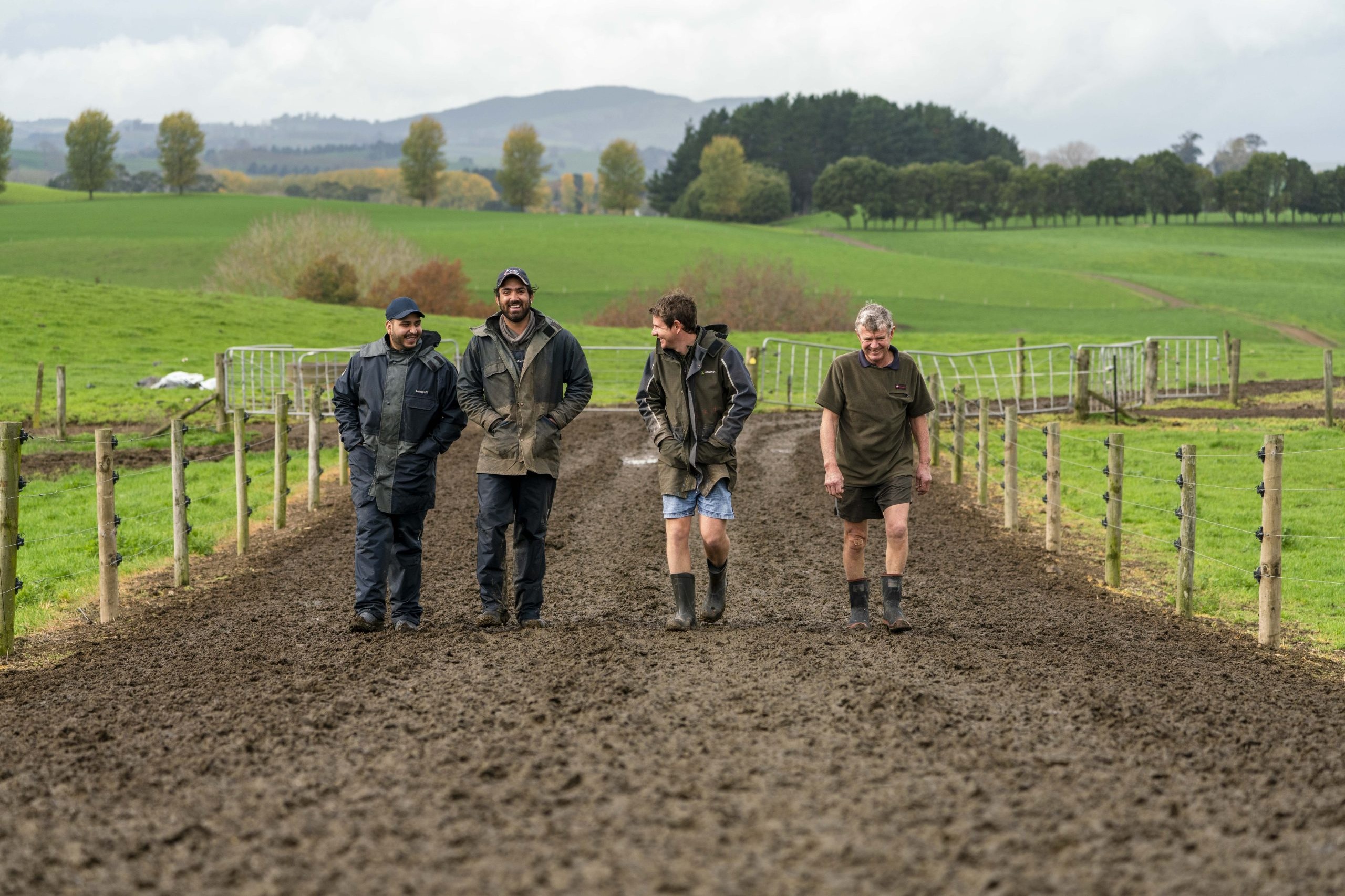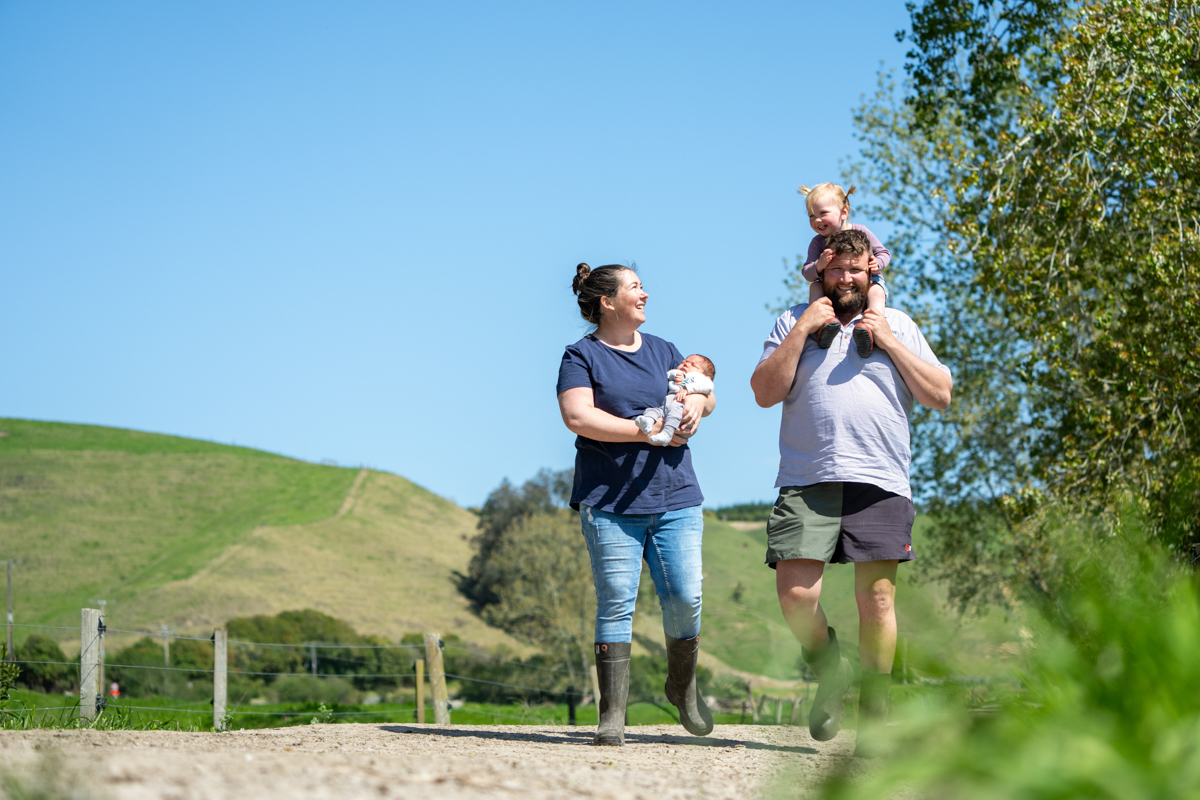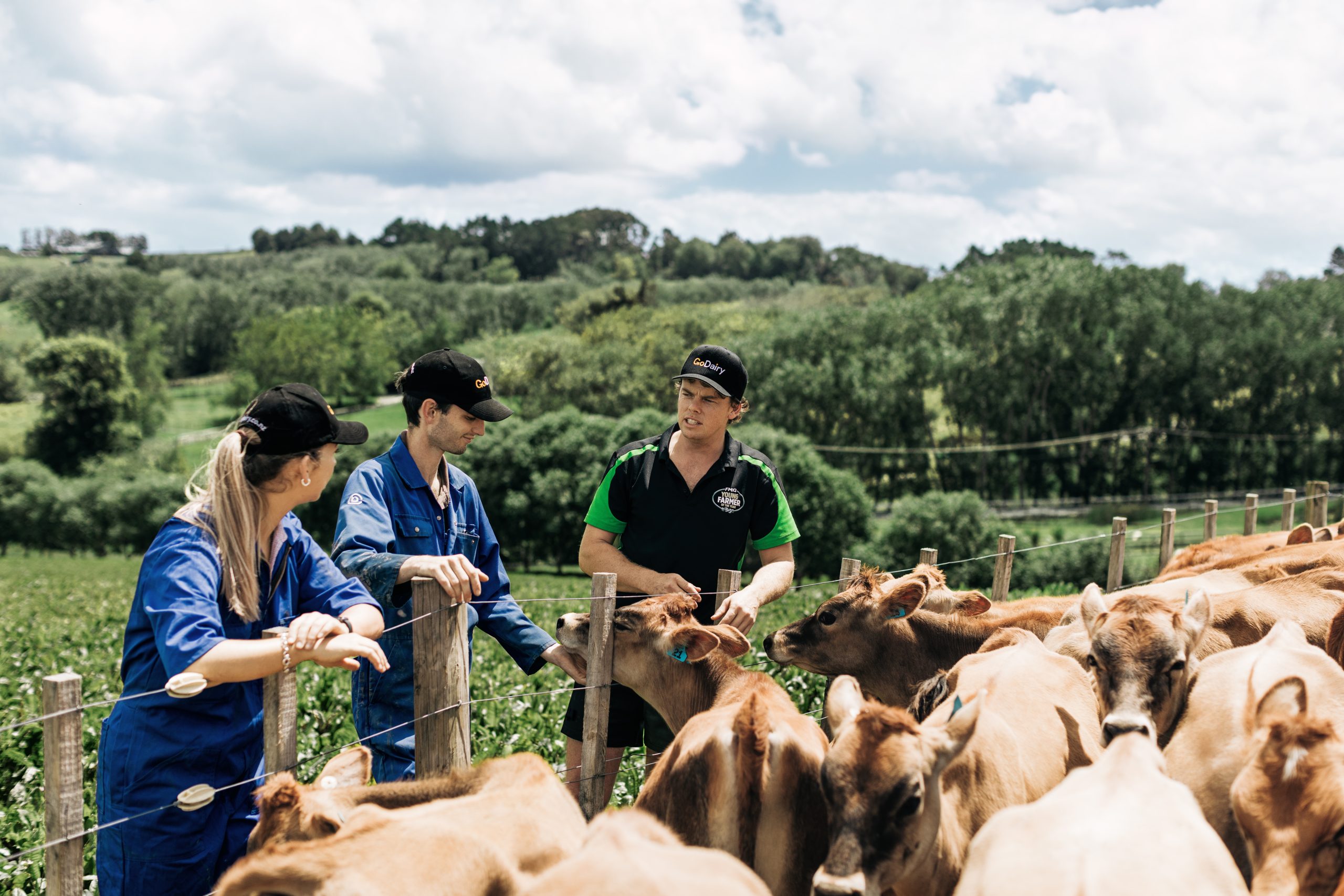Words by Glenys Christian
Zinettie Clark firmly believes what you learn through any work experience prepares you for something else. And the 19-year-old, usually known as Zee, urges those keen on a future in agriculture while they’re finishing their schooling to get a part-time job, “even if it’s mowing lawns”.
“Seek out people who will give you experience because that will get you further than other people,” she says.
“As long as you keep thinking about doing something there will always be paths that will allow you to do what you want to. But you have to be willing to get it.”
In her case that quest started when she was growing up in urban south Auckland.
“I loved the outdoors and animals,” she says.
“I hated growing up in the city and I was always begging my parents to move to the country.”
With her father working at Auckland International Airport that wasn’t a very practical option.
But he did take her hunting on a Gisborne farm where goats were a pest and they shot them for target practice as well as going after deer. She’s also recently found out that her great-grandfather had owned a dairy farm at Drury.
She attended Tyndale College in south Auckland which had a small school roll and didn’t offer agricultural courses, so Zee studied art, English, geometry, human biology and sciences.
“I didn’t really know that farming existed,” she says.
“I just knew what I wanted to do.”
One of her best friends had a cousin on a dairy farm near Dargaville in Northland, and through this connection she first visited as a 15-year-old. Then she started going up every second weekend to help out on Robert and Kim Bray’s property, milking 180 cows and staying during school holidays.
“I just fell in love with the view,” she says.
“It was quite remote and you looked out over all these hills.”
She picked up the basics of farm work watching what others did on the farm then following them.
And Robert gave her some sound advice which has stayed with her.
“He said as long as I didn’t over-work myself and my job wasn’t just a job it I would be all right,” she says.
“He told me to keep a balance and not to be afraid to ask for help.”
“They (my parents) were supportive but not when I came home smelling of cows’ crap.”
But she also quickly worked out for herself that if a heavy job needed doing there was usually a smarter way around the situation.
And work/life balance was made easier in the duck shooting season when they would also go after pheasants. This initial dairying experience led to her helping out on Tony and Sue Oud’s farm nearby where the Brays’ oldest son was manager. Here herds of 180 and 240 cows were milked through two dairies.
“My parents thought I was crazy,” she says. “They were supportive but not when I came home smelling of cows’ crap.”
As a result of some research carried out by her mother she connected with Primary ITO’s Karen Whiteman who in turn phoned Patumahoe dairy farmers Brian and Pirkko Gallagher. They milk 380 cows on 125 hectares (115ha effective) in a DairyNZ System 4 to 5 operation with dry cows and young stock grazed on two nearby leased runoffs of 100ha and 30ha. They were happy for Zee to come out to give a hand at afternoon milkings on a Sunday from November 2014.
And by the time autumn calving started for their split-calving herd on April 1 she was working for them part-time, due to her enthusiasm and ambition.
“She didn’t struggle with anything, even moving the irrigator.” Brian says.
“Then she was 2IC within six months. I honestly haven’t seen anyone pick up things so quickly.”
He admits he was in the habit through dealing with other staff members who don’t live onfarm, of telling them things twice. But with Zee he soon found that was completely unnecessary.
She also made a start with Level 1 Primary ITO courses then moved on to Levels 2 and 3.
“With the theory I could relate to what Brian was showing me,” she says.
Her friends in the city sometimes missed out on catching up with her because of the hours she was working and the travelling she was doing to and from south Auckland.
“But they thought it was different and cool that a female was getting into the agricultural industry,” she says.
She relished the opportunity given to her so much she’s quick to name calving as one of her favourite jobs onfarm.
“I enjoy the challenge,” she says.
“Not every day’s the same so it keeps you on your toes. There’s so much pressure and so many things that can go wrong, but there’s always a way you can cope.”
During that year she made the big decision to go to Massey University.
“I was anti-university until I met Brian,” she says.
“I thought that after high school that was it and I didn’t want to be in debt.”
But working for the rest of 2015 she was able to save $30,000 to pay her university fees.
“It’s really easy to pay off loans if you work hard and save,” she says.
Brian believes that at 17 she was probably too young to go to university.
“I told her that it would take her the first term to get her head around things,” he says. She thoroughly enjoyed her time at self-catering Ferguson Hall.
“But it was a massive difference between coming home to my dog to girls screaming in the hallways,” she says.
Her plan is to complete her degree early next year (2019) with a minor in agricultural science after really enjoying studying animal biology and animal sciences.
“It gives you different perspectives.”
And last year (2017) she got her head around onfarm decision tools in the primary industry.
“We looked at stock reconciliations and records of sales and learned how farmers do it.”
But her major will be in ecology and conservation.
“I did an ecology paper at Level 2 and got interested in the molecular view of things,” she says.
When she told Brian what she was planning last July he was quick to tell her to follow her passion.
“The best students will get picked no matter what they do,” he says.
“She ticks all the boxes for future employers. But we’ve got a mandate on her and get her booked in early. Our succession plan includes her if she wishes.”
Zee is now thinking she would like to do a Masters, attracted by the idea of being able to choose a subject she really wants to research and publish a paper on it.
“I have certain ideas that haven’t been explored,” she says.
“I am so open-minded about what I can do to combine agriculture and ecology, and I’d like to travel to see how people do things differently.”
In the “very long term” she says her aspiration is farm ownership.
“I’d really like to have my own conservation block where I could increase the number of dying species,” she says.
Brian and Pirrko have provided a lead here too with a QE II covenanted block of more than a hectare of bush on their farm.
“It’s the challenge and accomplishment and doing it that keeps me going,” Zee says.
“But family and friends are important. You’ve got to have people to chill out with because you don’t want to be successful and lonely.”
She still gets away on hunting trips with friends, mainly possum shooting, leaving behind her dog and cat.
Last year (2017) she made the move to flatting in Palmerston North with three male students.
“I’m one of the boys,” she says.
And while she’s back working on the Gallaghers’ farm over the university holiday they’ll be entrusted with the care of the flat’s giant Flemish rabbit, named, you guessed it, Bugs.
Seven steps to getting started
Brian Gallagher and Zinettie Clark have seven tips for youngsters looking towards a future in farming:
• Finish your education.
• Study your passion.
• While university teaches you a bit, what you do with
your qualification is up to you.
• Be prepared to work hard.
• Strive to achieve your goals.
• Find yourself a mentor to use as a sounding board.
Interactions are 100 percent confidential so there’s trust on both sides.
• Follow your dream.





